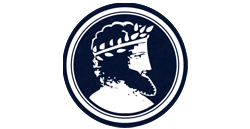Thinking about Trust
With the Master Class on building trust coming up next month, I have been thinking what a tricky topic ‘trust’ is.
I have always admired concepts like trust and loyalty. I first came across the trust in academic terms when I read Francis Fukuyama, who talked about trust as “social capital’. High trust countries do better than low trust countries. He famously compared Japan to a slab of granite, while China was a tray of sand.
So far, so good. But things rapidly get confusing. Fukuyama believes the US is ‘high trust’, but that may be simply because of its powerful legal system. Italy is” low trust” for Fukuyama, but Italy has a dysfunctional legal system. Not surprisingly, people are wary of doing business with strangers in Italy. Low trust at the formal level is often paralleled by high trust at the interpersonal level. In Italy, you trust your friends and family because you can’t trust institutions.
So let’s step back a bit first…
At its simplest, trust is the belief that a person will act in your best interest. The complication arises when you consider how much of his own self-interest he will sacrifice to further yours? Such questions are especially troubling when it comes to health care, for example.
Children trust their parents blindly but even parents may put their self-interest first, for example by saving money for their own retirement rather than sending their kids to an expensive school.
People often trust their friends to give objective advice. On the other hand, friends often compete, and your friend may be reluctant to help you get ahead quicker than he is.
So while trust is a concept so attractive that we all want to believe it exists, it clearly has limitations.
What some people call trust could actually be laziness or naivety. Being somewhat lazy, I often” trust” products and services that I buy. In other words, I “cross my fingers” and hope that I will not be disappointed. Quite often, unfortunately, I discover I should have done more research and read the ‘fine print’ more carefully.
Establishing trust in business is especially difficult if you consider that business is all about extracting as much money from your counterparty as possible. This sounds shocking, but it’s merely what ‘delivering shareholder value’ demands. Of course, just because it’s the accepted wisdom does not mean it’s right and the Delphi Network for example, has always emphasized personal relations for that reason. Interpersonal relations are quite different in their nature to inter-corporate relationships.
At a corporate level, we may build trust through implied threats as well as goodwill. If my counterparty knows that I have a good lawyer, perhaps I can trust him to do a good job.
But this ‘negative trust’ is not the trust we are interested in exploring in the Master Class. I am more interested in the trust that Morgan Stanley was able to build up with MUFJ, leading to the miraculous $9 billion check MUFJ wrote out to Morgan Stanley for a 10% stake, as the once proud I-bank hovered on the brink of destruction at the height of the Great Financial Crisis.
This is trust in its most powerful sense: a shining knight saves you from destruction because there is something about your company (it’s people, leader, culture, history or something even more intangible) which he values and wishes to see continue. He is trusting you, even as the ‘market’ wants to wash you down the drain. That’s almost like love! And doubly rare in the financial industry, let alone business.
Of course, the deal had to benefit MUFJ too. But I think Morgan Stanley must have also done something right over the course of its long relationship with MUFJ to impress MUFJ as a company worth taking a risk on. Among other things, it’s what they did ‘right’ to establish that trust that we want to explore on December 11, and the role of the CEO in helping the process along. After all, you never know when you might need a saviour…!

